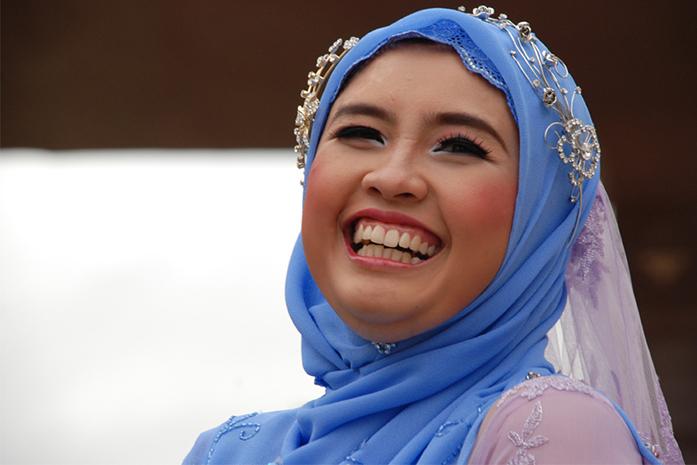Anis Shakirah Mohd Muslimin
Being modest in France is a crime.
The burqini is the latest in a long line of Muslim-related-clothing that was recently banned by the French government, which is notoriously known for its bans on Muslim garb. The government’s last ban was on the burqa — enveloping outer garments worn by women in some Islamic traditions. And who could forget the ban on headscarves worn by women and girls in schools?
Last week, a woman was fined 11 Euros for wearing a simple headscarf and leggings on the beach in Cannas. And Wednesday, pictures of French police forcing a Muslim woman to remove parts of her burqini clothing in Nice had exploded on the internet.
I’ve always been privileged enough to get to choose what I wear — but honestly though, why should someone be penalized for choosing to cover up? Yes, I do get a few glances and stares at times, but I’ve never had to, or even be told to compromise my values.
So, to see a fellow Muslim being forced to go against her will, value, and identity was heartbreaking.
The French government claims that the burqini ban was done to “protect the value of freedom of expression,” which is the obvious opposite thing to do, if the goal is to protect freedom of expression.
To begin my argument, let me start with a simple fact: Contrary to popular belief, not all Muslim women wear the headscarf or cover up. In fact, for me, it’s a personal choice. The hijab doesn’t oppress or makes me feel less, but it empowers me.
I acknowledge that in some parts of the world, women are not presented the same opportunity to choose for themselves whether to cover in public, but I encourage everyone to stop assuming that all women who cover up are oppressed. Assumptions never do any good, and it’s expectations such as those that depreciate Muslim woman who do choose to cover up.
Just look at France.
The French claim that the bans were to ensure the “protection of freedom,” but to me, the real purpose of the ban is to cover a much darker truth — bigotry and fear.
After all the recent terrorist attacks, notably the 9/11 attacks in the United States, and all the international backlash that came with the attacks, Muslims suddenly had to be accountable for the actions of a few criminals who do not represent the majority.
From my experience, I’m constantly on guard, making sure I don’t say the “wrong” words. I’m frequently asked if I believe in what terrorists believe, and to some degree, I have gotten used to it. Because the reality is, Muslims have been scrutinized to the very core.
At one point, it doesn’t even feel shocking to hear people categorize Muslims as threatening and dangerous. It almost feels like you’re adorning an invisible tag that automatically places you as the “other.”
I can understand why Muslims or people with “Muslim names” or those who have “Muslim” looks are treated with more precaution. I try not to take offense to that; however, I always wonder, where do we draw the fine line between safety and bigotry?
Burqini creator Aheda Zanetti said her product doesn’t symbolize Islam, it symbolizes leisure, happiness, fitness, and health.
Her summary of the current events unfolding in France made so much sense to me; she said, “This [burqini] has given women freedom, and they want to take that freedom away? So who is better, the Taliban or French politicians? They are as bad as each other.”
Yes, I agree with her. The French ban of the burqini is akin to the Taliban banning women from, for example, getting an education.
The burqini ban crosses numerous spectrums of biases, from religious to gender, but it gains pace fueled by fear and hate.
Before the burqinis, many Muslim women that I know fear going out to the pool or to play a certain sport because they feared being judged or viewed as “weird.”
But unfortunately for the French, a product that was supposed to provide a sense of equality, protection, and integration, is now viewed as an oppressive device meant to keep Muslim women in the past.
It’s not. It never has. It never will.



